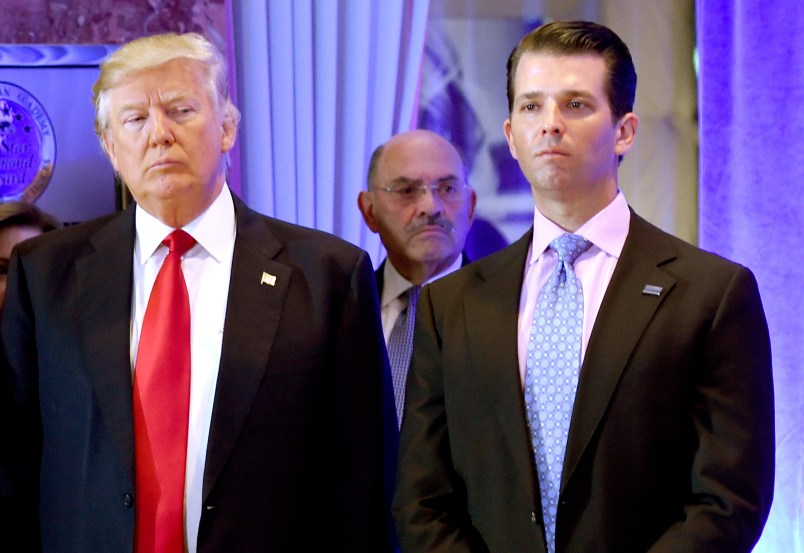The Manhattan district attorney’s office is expected to charge the Trump Organization and its chief financial officer, Allen Weisselberg, with tax-related crimes Thursday, the Wall Street Journal reported Wednesday, citing unnamed people familiar with the matter.
Reports in recent days have indicated that Weisselberg was likely to be charged, after Weisselberg reportedly refused to cooperate with the Manhattan DA’s years-long probe into Trump’s business practices. The charges would ramp up the pressure on the decades-long Trump confidante and Trump Org executive to help prosecutors find other alleged criminal wrongdoing.
Attorneys for the Trump Organization met with Manhattan District Attorney Cy Vance’s office Monday.
“For decades we knew that Trump was cheating — in Atlantic City, the university, his workers, the charities — and now everything is coming home to roost,” Bennett Gershman, a professor at Pace Law and a former prosecutor in the district attorney’s office, told TPM recently.
The Journal reported that the charges expected to be levied against Weisselberg and the Trump Organization concern their evading taxes on fringe benefits, such as apartments and private-school tuition.
The New York Times first reported Friday on the prospect of the Trump Organization itself facing charges as a legal entity. The Manhattan DA’s office had informed lawyers for Trump that it was considering charges against the company and Weisselberg in connection with fringe benefits.
“In my more than 50 years of practice, never before have I seen a district attorney’s office target a company over employee compensation or fringe benefits,” Trump lawyer Ronald P. Fischetti told the Times then. “It’s ridiculous and outrageous.”
Prosecutors were also said to be looking into allegations from former Trump attorney Michael Cohen and others that Trump would inflate and deflate his real estate valuations to his own ends.
“It was my experience that Mr. Trump inflated his total assets when it served his purposes, such as trying to be listed amongst the wealthiest people in Forbes, and deflated his assets to reduce his real estate taxes,” Cohen testified before Congress in 2019.
In May, investigators from the New York attorney general’s office, who’d been pursuing their own probe into the Trump Organization, announced that they’d linked up with the Vance criminal investigation while the attorney general’s office continued with a parallel civil inquiry.
Vance’s three-year probe into Trump’s business practices included a lengthy struggle to enforce a subpoena on the former President’s financial records. The Supreme Court ruled in February — the second time the issue had come before the court — that “no citizen, not even the president, is categorically above the common duty to produce evidence when called upon in a criminal proceeding.”
This post has been updated.



